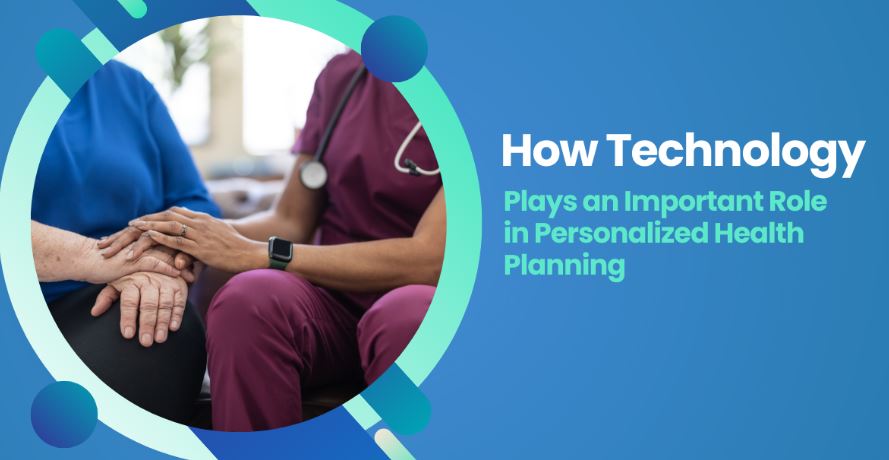Technology enhances the way we receive medical care. Devices we wear now track health stats. Intelligent programs also analyze this patient data. They help doctors make a tailored plan for every person.
AI detects issues early by identifying patterns. It says if more tests are needed based on each case history. People get alerts on phone apps to take action quickly. Technology ensures that the appropriate care is delivered promptly, particularly in cases of chronic conditions. The future appears promising as innovations continue to personalize healthcare.
The Era of Tailored Medical Care
The era of one-size-fits-all healthcare is coming to an end now personalized health technology lets prevention and treatment match a patient’s genes, lifestyle, and medical history. I’ve witnessed remarkable advancements in customized care facilitated by the collection and utilization of health data.
Why healthcare is getting personal:
-
Data from apps, fitness wearables, and gene tests keeps growing. This paints a detailed health picture.
-
Computers analyze facts to find what makes someone unique.
-
Doctors can then predict risks early and choose precise methods proven to help that individual.
In summary, healthcare is becoming increasingly preventive, predictive, and precise.
Data-Driven Health Insights
Combining diverse digital records lays the foundation for customized care.
Key sources of personalized data include:
-
Electronic Health Records (EHRs) with medical visits and tests
-
Insurance claims showing diagnosed conditions
-
Pharmacy systems tracking prescriptions
-
Wearable devices recording fitness habits and biometrics
-
Genetic test results indicating disease risks
With consent, this data finds patterns to:
-
Calculate someone’s odds for certain illnesses
-
Flag who needs early screening
-
Set up prevention plans based on risks
-
Pick treatments most effective for genetics/lifestyle
-
Predict medication reactions
For instance, a comprehensive analysis generated a 10-year heart disease risk score by synthesizing genetic data, electronic health records (EHRs), and demographic information.
These personalized insights allow tailored care planning.
Wearable Technologies and Continuous Monitoring
Wearable health devices allow patients to easily collect biometric data anywhere, anytime.
Popular consumer devices include:
-
Fitness trackers (tracking steps, calories, sleep)
-
Smartwatches with health features
-
Continuous glucose monitors
-
Wearable ECG/EKG monitors
-
Skin patches track variables like temperature and blood oxygen
This real-time data complements periodic check-ups to provide a more complete view of a patient’s health over time. Benefits include enhanced collaboration among healthcare professionals and the seamless integration of patient information into electronic health records using a standardized soap note template.
-
Identifying individualized baselines
-
Detecting early signs of changes in health
-
Monitoring the effectiveness of treatments
-
Providing feedback for condition management
-
Motivating healthy behaviors
For instance, a study found that wearable activity trackers helped obese patients increase daily physical activity by over 1,000 steps per day.
The continuous stream of patient-generated data will enable healthcare plans to be tailored based on an individual’s response, rather than solely relying on generic guidelines.
Care from Anywhere: The Rise of Telehealth
Telehealth lets patients conveniently get quality care remotely via:
-
Video visits with doctors
-
At-home health monitoring gadgets
-
Online hospital portals
-
Mobile apps for managing conditions
Benefits include:
-
More people access healthcare
-
Customized health coaching
-
Patients taking meds properly
-
Better control of ongoing illnesses
-
Fewer return hospital trips
A RAND study found patients using telehealth for 5 common conditions had 25-31% fewer hospital visits within 6 months, compared to usual care.
Online dashboards also empower individuals to work towards their personalized health goals between appointments.
AI Predicting and Preventing Health Issues
AI and machine learning unlock new ways to get ahead of problems by:
-
Finding patterns in health records most never could
-
Calculating someone’s odds for particular diseases
-
Spotting early signs of changes
-
Adjusting treatment plans promptly
For example, AI imaging tools can benchmark medical scans against databases to detect anomalies early. Other apps use cameras to confirm patients take meds, nudging them if they miss doses.
As technology continues to advance, it will provide specialized risk forecasts and recommendations to keep healthcare one step ahead.
Gene-Based Testing for Tailored Treatment
Genomic sequencing maps a person’s lifelong health risks and ideal treatments based on their genetic profile. Main uses involve:
-
Screening DNA for the likelihood of certain illnesses
-
Advanced early diagnosing
-
Therapies targeting specific genes
-
Matching drug types and doses to someone’s genetics
For instance, researchers have developed a genetics-based algorithm to calculate a woman’s odds of ovarian cancer over her lifetime based on genetics. This knowledge enables closer monitoring when needed.
By clarifying each patient’s unique risks and responses, care can be adapted to work best.
FAQs
1. How do wearable devices help with health planning?
Wearables track daily habits like sleep and exercise to understand lifestyle factors influencing someone’s health and set better goals. Nurses and healthcare professionals see fitness trackers motivate patients to be more active and lose weight, improving health drastically.
2. What health data gets collected for personalized plans?
Apps can record symptoms, nutrition, family histories, and test results over time. This info helps customize disease prevention and treatment. Devices now passively gather heart rate, oxygenation, activity levels, and more to refine care plans.
3. How does AI help create personalized programs?
AI studies health trends in big data to find risks early, recommend when more screening is needed, and adjust care as conditions change. This alerts doctors if patients need interventions based on thousands of case studies similar to theirs. In the long run, this technology will be able to catch life-threatening illnesses sooner than ever.
4. Can phone apps improve health management?
Yes, app alerts remind people when to take medications, get tests, exercise, and more based on their progress. This helps patients stay on course. Apps can explain complex topics clearly to users too. Seeing risk factors displayed helps motivation.
5. Is all this technology secure for private medical information?
Strict laws require tech developers to store patient data very securely. Privacy remains protected while technology coordinates care. Electronic medical record systems have immense encryption and authentication safeguards in place, even more than standard online security protocols. Patients should have complete confidence in sharing their health information with healthcare providers.
Bottom Line
Technology gives medical care a bright future. Now prevention and treatment fit each unique person. Data and smart programs help doctors forecast issues early to keep us healthier. Care anywhere through telehealth makes life easier too. There’s always more work needed to protect privacy and fairness while technology moves forward.
But overall, these health innovations should make every patient’s experience better. Getting such customized attention will hopefully motivate more people to be proactive partners in managing wellness. Better health powered by tech excites me – I bet it can inspire you too!





